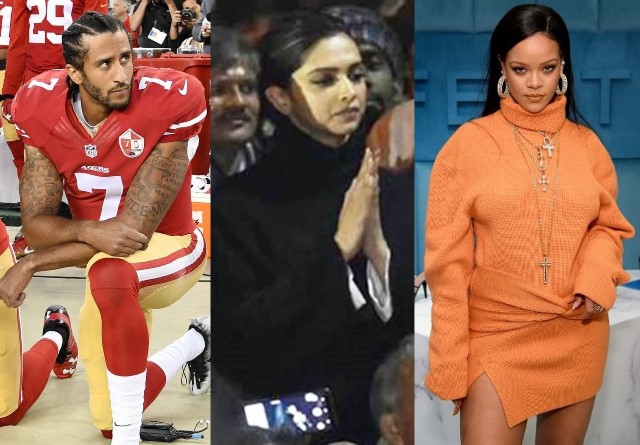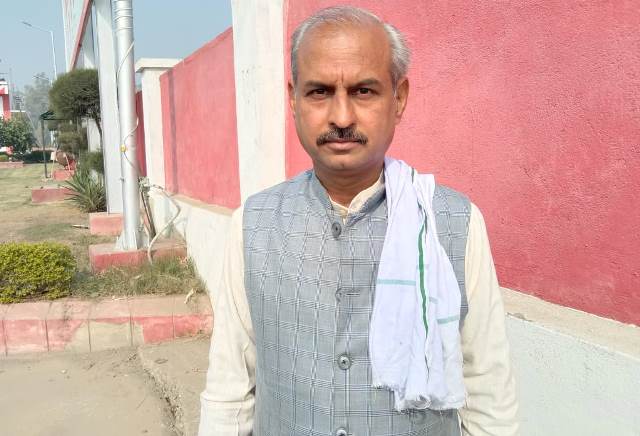Football came by accident. I was more interested in politics. I always had my eyes turned to the social injustices in the country. I just happened to be good at football, which gave me entrance to a very different and privileged environment…If people do not have the power to say things, then I will say it for them.
–Socrates, Brazilian soccer legend
Do celebrities, writers, artists, filmmakers, celluloid superstars, sports icons, among others, have a special social and political responsibility towards their life and times? Are they located in history despite their wealth, success and fame? Can their fame, success and prosperity make their own societies, and their own world, a better place?
This uncanny question came back with its bitter ritualism soon after pop star Rihanna Tweeted only six words, referring to a CNN report on the peaceful, relentless farmers’ struggle in India. Her six words were amplified by a 100 million fan base, and reamplified by tens of thousands. The global sky virtually opened up with social media messages backing the farmers. The medium became the message.
This was followed by Greta Thunberg’s tweet, along with a forthright message by lawyer and author Meena Harris, the niece of American Vice President Kamala Harris.
The ruling establishment in Delhi was rattled beyond words. This led to an avalanche by its troll army using all predictable means: vile, foul, sexist, vicious threats, including against a British female MP. Two other jarring notes quickly followed, both leaving a bad taste in bad faith, as a sycophantic public spectacle.
The Ministry of External Affairs (MEA) issued a long-winding statement in response to Rihanna’s Tweet, replete with nationalistic, ‘bureaucratese’, with the hashtag #IndiaAgainstPropaganda and #IndiaTogether. This was followed by a handful of Bollywood actors and Indian cricketers, including Sachin Tendulkar, putting out identical hashtags and look-alike statements.
Sachin wrote: India’s sovereignty cannot be compromised. External forces can be spectators but not participants. Indians know India and should decide for India. Let’s remain united as a nation.
In the first instance, seasoned journalists who have covered the MEA would be utterly shocked! How come the ministry chose to react with such a lengthy, burdensome response, to a six-word post by an American pop star – this is unprecedented! Does it reflect the abject loss of diplomatic finesse and protocol in terms of foreign policy, or, indeed, is the ground beneath their feet really slipping?
Since Sachin is an icon, he faced the brunt of public criticism. It all became more jarring because of his ‘speechless’ record in the Rajya Sabha as an MP, and his eternal refusal to utter one word ever on any public or controversial issue in the past.
The farmers were hurt: how come Sachin had not spoken about their non-violent struggle, the 200 dead under the open-sky, the internet ban, concrete barricades, the siege, the long nights for over two months in this freezing cold? How come his love for India and its sovereignty did not include the thousands of farmers and their families peacefully protesting, while he chose to ride the ruling regime’s hashtag bandwagon?
ALSO READ: ‘Rihanna, Greta Amplified Voice Of Farmers’
It is bitter realism that most Indian celluloid superstars and sports icons, with their huge fan-following, either keep wilfully mum during a national crisis, never take up a cause for public interest, express no angst or anger against gross injustice or human suffering, or, instead, choose to toe the pro-establishment line. Their silence often borders on complicity. For our cricket heroes, former and current, apart from cricketing jargon, the cat seems to have got their tongue in all circumstances.
Compare this to those who inevitably stand up to the powers-that-be, speak the truth, take public positions, aware of the risks involved, unafraid of the consequences – the likes of the (late) UR Ananthamurthy, Mahasweta Devi, Rajendra Yadav, Soumitra Chatterjee or Girish Karnad, among other greats. Or, Sharmila Tagore, Amol Palekar, Aparna Sen, Anurag Kashyap and Naseeruddin Shah, among others. Even Deepika Padukone, a mega star, had the guts to stand in silence and solidarity with student protesters in JNU, after they were brutally assaulted by the armed goons of BJP’s youth wing, with cops watching in tacit alliance.
This follows a noble tradition among the greats in the Indian artistic domain, including cinema. Salil Chaudhury, Ritwik Ghatak, Kaifi Azmi, Munshi Premchand, Rabindranath Tagore, Sahir Ludhianvi, Balraj Sahni, Utpal Dutt, stars of our aesthetic firmament, firmly stood against fascism, and injustice, and aligned with the poorest of the poor. This was reflected also in their cinema, literature, music and lyrics. During the Emergency, Kishore Kumar and Dev Anand openly defied Sanjay Gandhi’s diktats and Indira Gandhi’s dictatorship.
Outside India, Socrates lived his political life as a soccer legend in full defiance of the military dictatorship; Diego Maradona openly flaunted the tattoos of Che Guevara on his body, as well his comradeship with Fidel Castro; Pablo Neruda became ill after his close friend, Salvador Allende, elected president of Chile, was killed in a CIA-backed military coup; Vaclav Havel led the Prague spring against the ossified ‘Communist’ dictatorship; Mohammad Ali defied the US government and refused to go to war and kill the people of Vietnam. This is a long and illustrious history.
American football quarterback Colin Kaepernick sat on the bench while the US national anthem was being played in a pre-season game on August 26, 2016. Why? To protest against police brutality and racism. “I am not going to stand up to show pride in a flag for a country that oppresses Black people and people of colour,” he said. Later, he started ‘taking the knee’, which has been followed by athletes, celebrities and ordinary people in support of the Black Lives Matter movement triggered by the murder of George Floyd when a cop suffocated him with his knee.
ALSO READ: Many Celebs Spoke For Indian Farmers
During the Vietnam War, a huge section of Hollywood marched with the anti-war protesters. George Clooney, Susan Sarandon, Robert Redford, Uma Thurman, Matt Damon, Richard Gere, Jessica Lange, among others, opposed the Iraq war, calling the WMD scare fake. Award-giving ceremonies and public functions were used to protest against the Iraq War and George Bush. Said Gael Garcia Bernal, famous for his role of Che Guevara in The Motorcycle Diaries, “If Frida (Kahlo) were alive, she’d be on our side, against the war” even as he presented a song from the film about the famed Mexican artist.
In the contemporary era, the BLM movement has galvanised almost the entire Hollywood and entertainment fraternity, with celebrities like Michael B Jordon, Tyler Cameron, Matt James, Madonna, Sophie Turner, Jo Jonas, Vanessa Hudgens, Ben Affleck, among hosts of others, marching on the streets and taking categorical position against racism.
Jennifer Lopez wrote on Instagram: “Max (son) told me a few days ago: ‘You know mom, since you have a following like some of my YouTuber gamers and they ask us to support things and we do, you should do that for George Floyd.’… I said, ‘Funny you say that baby, I am planning a few things. Do you want to help by making a sign?’” The singer added: “And they did!! We talked about how if one person doesn’t have justice then no one does. That this country was built on the belief of freedom and justice for all. We must take a stand for what we believe in and fight against the injustices in this world. So, we continue to peacefully protest until there is change.”


